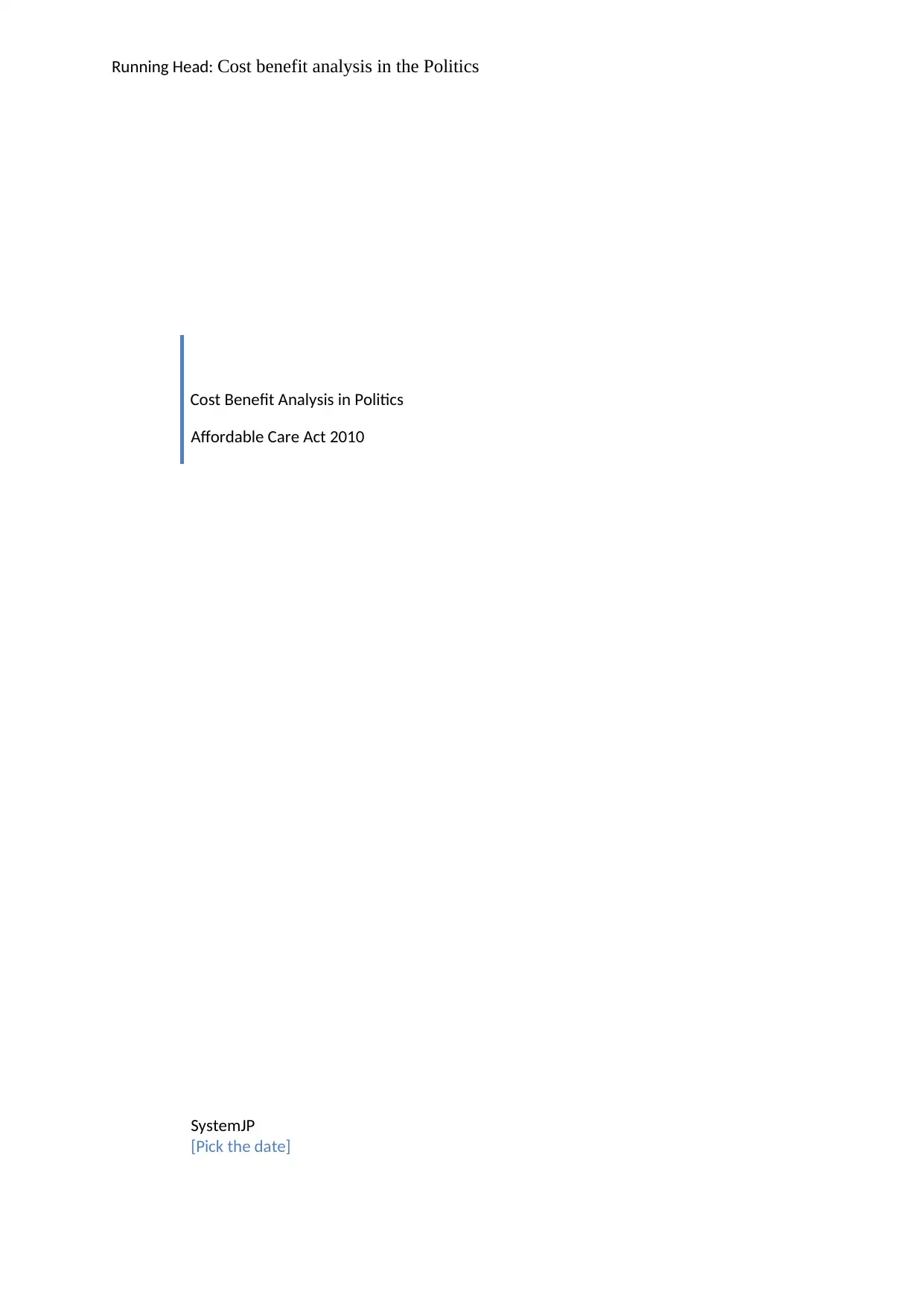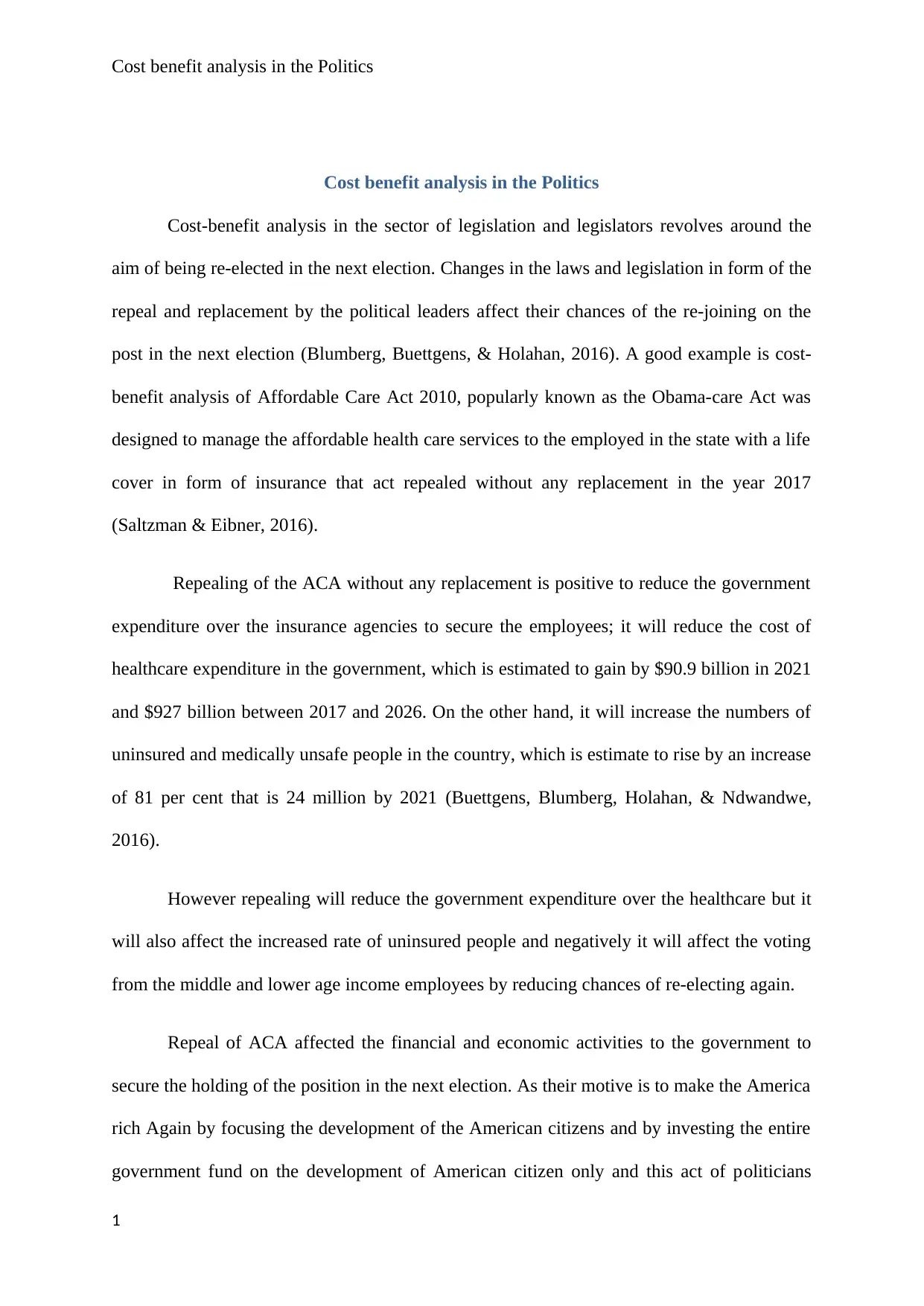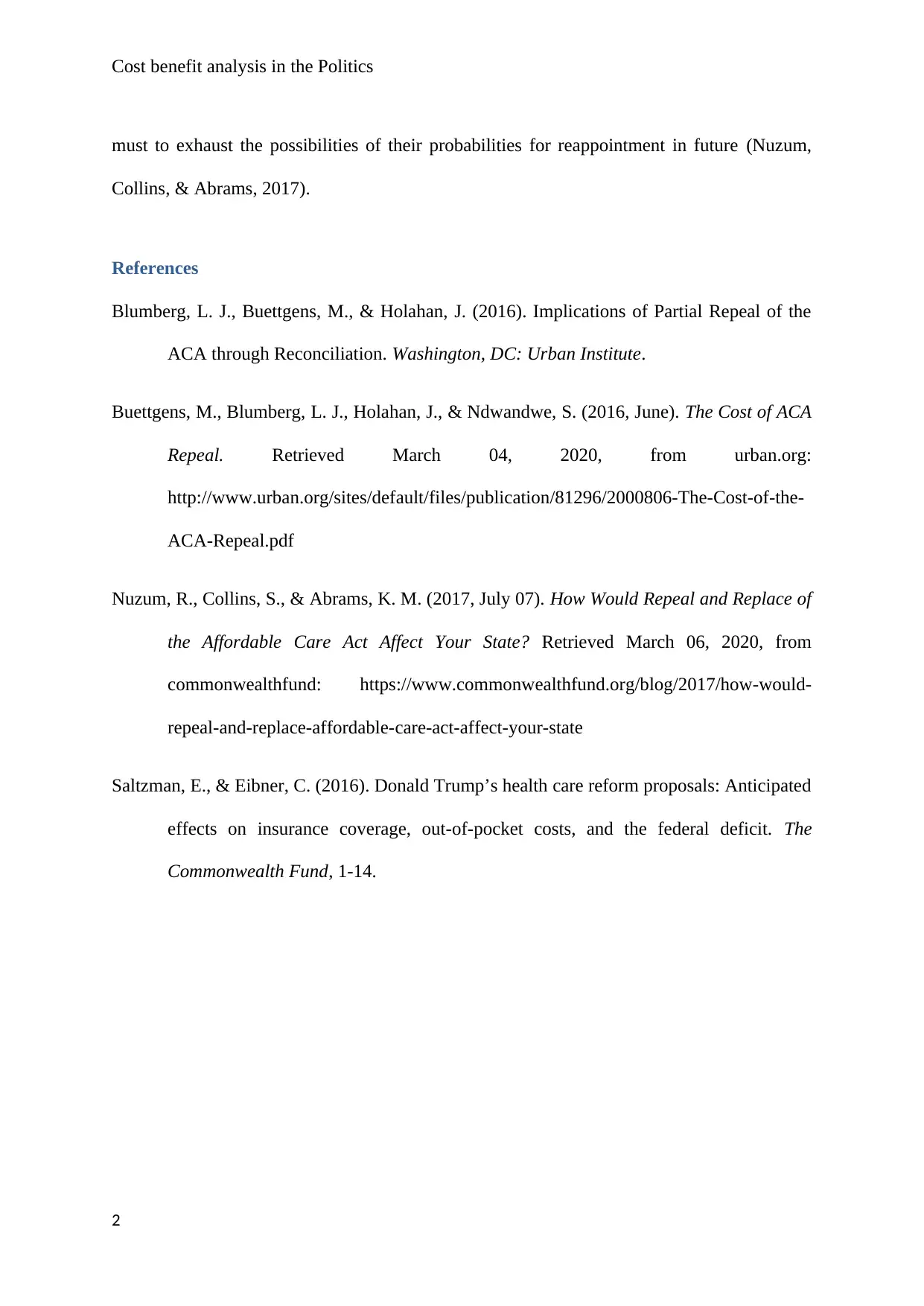Legislators & ACA: Cost-Benefit Analysis, Re-election, and Policy
VerifiedAdded on 2022/08/12
|3
|555
|11
Discussion Board Post
AI Summary
This discussion post analyzes the cost-benefit analysis of the Affordable Care Act (ACA) within the context of political re-election. The author explores how the repeal and replacement of the ACA, also known as Obamacare, were influenced by legislators' concerns about their chances of re-election. The post highlights the economic implications of the ACA, including government expenditure, insurance coverage, and potential impacts on voting patterns among different income groups. The author references the financial and economic activities of the government, underscoring the political motives behind policy decisions. The analysis includes the impact of the ACA on the financial and economic activities of the government. The post also considers how analyses of voter views may affect decisions by legislative leaders in recommending or positioning national policies like Medicare or Medicaid. The author references several academic sources to support the arguments presented.
1 out of 3










![[object Object]](/_next/static/media/star-bottom.7253800d.svg)